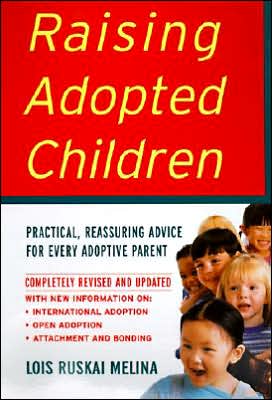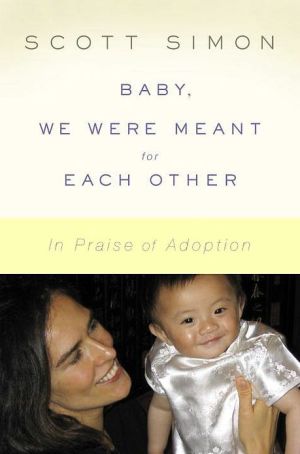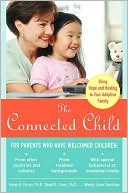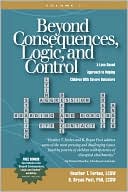Raising Adopted Children, Revised Edition: Practical Reassuring Advice for Every Adoptive Parent
In this completely revised and updated edition of Raising Adopted Children, Lois Melina, editor of Adopted Child newsletter and the mother of two children by adoption, draws on the latest research in psychology, sociology, and medicine to guide parents through all stages of their child's development. Melina addresses the pressing adoption issues of today, such as open adoption, international adoption, and transracial adoption, and answers parents' most frequently asked questions, such as:\ \...
Search in google:
In this completely revised and updated edition of Raising Adopted Children, Lois Melina, editor of Adopted Children newsletter and the mother of two children by adoption, draws on the latest research in psychology,sociology, and medicine to guide parents through all stages of their child's development. Melina addresses the pressing adoption issues of today, such as open adoption, international adoption, and transracial adoption, and answers parents' most frequently asked questions, such as: How will my child "bond" or form attachments to me? When and how should I tell my child that he was adopted? What should schools be told about my child? Will adoption make adolescent upheavals more complicated? Up-to-date, sensitive, and clear, Raising Adopted Children is the definitive resource for all adoptive parents and concerned professionals. "Raising Adopted Children is a comprehensive source of practical, reassuring advice and intelligent support for the adoptive parent. [It is also an] excellent professional resource for social workers, physicians, teachers, therapists, and others working with adopted children and their parents."—North American Council on Adoptable Children "Melina, an adoptive parent, writes both sensibly and sensitively on many critical issues faced by parents and their adopted children from infancy through adolescence."—Booklist
\ The Transition to Adoptive Parenthood\ \ Adoptive parents are often told that they got their children "the easy way." Those who say that know little about the decisions and adjustments children and parents must make when they become "instant families" through adoption.Whether it is furnishing a nursery, buying school clothes for an older child, suddenly asking for a leave from work, dealing with parasites a child acquired before he left his country or grief experienced because he left his home, adoptive parents are hit with the full force of parenthood at once.\ Although adoptive parents have often waited a long time to become parents, they are not always prepared psychologically or physically for the arrival of a child.The unpredictability of the adoption process sometimes keeps prospective adoptive parents from getting ready for the child's arrival.A fully furnished nursery is a symbol of hope to some, but a reminder to others of what is missing in their lives, so they put off preparing a space for the child in their home.\ More important, they may not be emotionally ready for the significant new roles they will be assuming.In their efforts to protect themselves from the pain they will feel if the adoption does not proceed as planned, some prospective adoptive parents inadvertently fail to prepare themselves psychologically and spiritually for the likelihood that they will soon become mothers or fathers.Although pregnant women may be equally worried about the outcome of their pregnancies, they have a difficult time ignoring their impending motherhood. Waiting adoptive parents have nothing to remind them to slow down, to start making. changes intheir lifestyles, or to take care of themselves during what is a physically and emotionally stressful time.\ I was one of those waiting adoptive parents who kept myself from thinking about our daughter's arrival by keeping busy.I was a bit put off when a friend arrived one day packing a used crib. "It's time to get the baby's room ready," she said as she marched into the house with the furniture, even though we still had no idea when our daughter would be arriving.I let her put up the crib, but made no effort to decorate the bedroom we had set aside for our daughter to turn it into a nursery.However, I found myself wandering into the room, standing by the crib, and imagining a baby there.The physical presence of the crib allowed me to believe that it would be occupied one day and started me on the psychological process of becoming a mother.\ \ Adoptive Parenting\ \ The first Sunday after our daughter arrived, we proudly took her to church with us, eager to share our joy with our friends.At the same time, I was somewhat reluctant to show her to people.I wanted everyone to see how beautiful she was, but she had begun to develop a rash on her face and scalp that we thought was probably an allergy to something new in her diet.Nevertheless, I was pleased to be sitting in the church "crying room" surrounded by other families--a mother at last. Later that day, our daughter spiked a high fever, and in another day it was clear she had the measles.My husband, a family physician, gave gamma globulin injections to all the children who had been exposed to the measles and had not yet been immunized, and our daughter recovered rapidly.Still, we were struck by the fact that within a week we had become not only parents, but parents of a sick baby who could have started an epidemic.Being unprepared for a baby who contracted a disease that is practically nonexistent in the United States was our first indication that traditional sources of child care information are often inadequate for adoptive parents.The majority of these manuals assume that the child was born into the family.They advocate breastfeeding, but fail to mention how adoptive mothers can stimulate lactation.They tell parents the symptoms of teething, but not how malnutrition can affect a child's teeth.They talk about the awareness of sexuality that develops in adolescence, but not about the fear some parents have that their child may be at a special risk of teenage pregnancy. They give advice for handling a child's nightmares, but do not address the real fears of a child who was abused in another family.They provide ways to build a child's self-esteem, but offer no guidance for helping a child who thinks he was "given away" because he wasn't "good enough." They talk about the importance of a good birth experience for bonding and attachment, but do not address the fundamental fear of adoptive parents that their child will not love them as much as he would had he been born to them and the corresponding fear of the child that he has been shortchanged when it comes to parental love because he was not born to these parents.\ Parents can feel overwhelmed when they realize they have taken on not just parenting, but adoptive parenting, with these additional challenges.Sometimes when we feel overwhelmed, we minimize what we are facing.It isn't unusual for adoptive parents to live that once their child is home, their family life will be no different from what it would have been if the child had been born to them.But just as it isn't realistic to approach adoptive parenting the idea that every interaction will be influenced by the way the child joined the family, it isn't realistic to discount it either.Ourexperiences as adoptive families are colored by many factors, including the journey that we took to become families. Some of the experiences may have increased our sense of vulnerability, while others may have made us stronger.\







